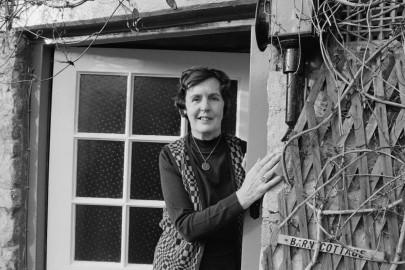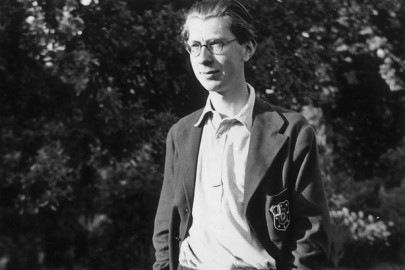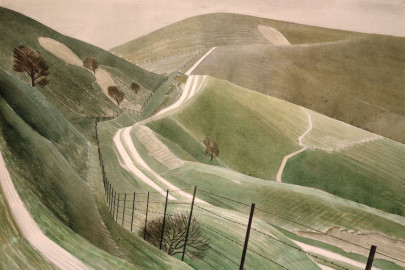Channel 4’s lavish production of William Boyd’s Any Human Heart may have tempted you to buy the novel, though I would question why: it seemed to me to consist of just one damn thing after another, the pace being kept chugging along by a death every ten minutes or so. Despite the efforts of a fine series of lead actors, the main character remained a bit inert. Unfortunately, even though Mountstuart is nastier, the book shares these flaws (I recall it having a few anachronisms too). You’d be better off with Boyd’s New Confessions, an earlier and more interesting attempt to trace the last century – and its film industry – through a life.
But even better, I’d recommend the original twentieth-century-as-literary-life-story: Anthony Burgess’s Earthly Powers. Its style is more playful (OK, or irritating according to taste), it’s funnier, it does the Zelig-type bits in a more revelatory, critical fashion, it explores its themes more deeply (e.g. religion), and it has a much more intriguing main character.
It also has, famously, the best opening line in recent English literature, which I make no apologies for wheeling out once more:
It was the afternoon of my eighty-first birthday, and I was in bed with my catamite when Ali announced that the archbishop had come to see me.
Don’t you want to read on? Well, I suppose it may not appeal to everyone…
But if you are persuaded, it happens to be available for one penny (and in hardback too).












FWIW, in 2006 it made the Guardian’s Observer list of “the best novel[s] in the past 25 years”:
“Joint third place
“Earthly Powers (1980)
“Anthony Burgess
“Homosexual writer Keith Toomey is asked to write the memoirs of the late Pope Gregory XVII – a commission that takes him on a whirlwind recap of the major events of the 20th century.”
http://www.guardian.co.uk/books/2006/oct/08/fiction.features1
Television has many advantages, giving us access to sights. sounds and people complete with their thoughts, at a distance of course but non the less a valuable tool that, used wisely enhances our lives. It has one large disadvantage, hurling into our homes some of the biggest egos the human race has ever possessed. Burgess must have had the biggest, the man was an absolute tosser, even worse than Dimbleby or Muggeridge.
‘Tis as well his writing was so ground breaking, ’tis a pity they turned Clockwork Orange into a movie, it was then and is now a load of pretentious donkey’s piddle.
Earthly Powers is probably my favourite novel.
Haven’t caught up with the last part of Any Human Heart yet, though I thought it was better than you (and Nige) did. The second part was dull but the first and third were pretty amusing and very well acted. Life is, in the end, one damn thing after another so that’s never bothered me as a plot device per se.
Thanks Dave. That surprises me as Burgess, with the exception of A Clockwork Orange, has disappeared from mainstream bookshops (posted on here). It seems that the rankings of ‘literary luminaries’ differ from those of bookshop buyers.
Malty, I remember seeing Burgess on chat shows and he was entertaining. Probably an entertaining shit.
Brit: What I was getting at with ‘one damn thing following another’ is that it wasn’t an engaging story. And I’m not sure life is one damn thing after another, anyway – at least as it’s lived. It’s surely very difficult not to invest one’s life with some meaning. Boyd may have been playing with whether this is possible (I don’t think so) but if he was I don’t think it worked as story-telling.
(BTW I believe we may have had this argument before in one way or another!)
Haven’t read Earthly Powers but a few months back I did read the notorious Burgess biography by Roger Lewis. It’s laugh-out-loud funny, really gets you yelping, but also the most mean-minded vindictive hate-filled hatchet job I’ve ever read: the onslaught is so relentless that you end up feeling quite protective towards poor AB (who more or less commissioned the book).
Lewis’s verdict is pretty much Malty’s: Burgess was “essentially a fake”, a “pathological liar”, a “pretentious prick” and, when all is said and done, a “complete f*****g fool“. Under the ‘Burgess, Anthony’ entry in the book’s index, the headings include affectation, anger, boastfulness, callousness, curious views, egotism, humourlessness, megalomania, misanthropy … and that’s just the first half of the alphabet. Lewis also insinuates (on little or no evidence) that Burgess was impotent, not the biological father of his son, and a CIA agent.
But even this summary gives no real idea of the book’s peculiar vehemence, which comes bursting out of every peevish bile-packed sentence. Here, for example, is Lewis on Burgess’s (admittedly very weird) appearance and in particular his elaborately rococo comb-over:
“And how are we going to describe his hair? The yellowish-white powdery strands were coiled on his scalp like Bram Stoker’s Dracula … (did the clumps and fronds emanate from his ear-hole?) … however the nicotine-stained fuzzy bush at the summit of his frame served to distract from the ugliness of the rest of his face … unnaturally long lower teeth, the colour of maize, and no upper set to speak of, the top of his mouth or lip having become elongated to conceal his gums, like a baboon.”
Hard not to enjoy this, but hard not to feel guilty for doing so.
Yes apparently Lewis hero-worshipped Burgess, but ended up killing his idol. Often the way.
Burgess’s autobiography – as fictional as his novels according to Lewis – is a great, rollicking read, especially the first part taking in his rackety Manchester upbringing. However, one infers he was horrible to the women in his life, so much so that it put my wife off his books altogether.
According to Kingsley Amis he was totally hen pecked.
I really loved Earthly Powers when I first read it – thought it was full of vitality. I think if I read it now I’d be suspicious of its theme about the nature of evil and how his hero managed to be present at all the important happenings of the 20th century, including a tour of Belsen. It’s a bit too desperate for the big themes.
However, I do think Burgess’s translation of Cyrano de Bergerac which appears as sub-titles in the film with Gerard Depardieu as Cyrano is really brilliant. He did have a huge amount of creative energy.
I gotta read more more of A.B.’s work – only managed A Clockwork Orange so far, which, as Malty says, is tosh, but there again it’s memorable tosh. If Burgess really was impotent (I’d heard that story too) then maybe one can forgive him for being a tosser.
Just re-read the chapter on Burgess in Amis’s Memoirs. His wives are certainly pictured as willful and Burgess as pacific. But there was a lot of history there. And who knows what was going on behind the curtain?
Personally, I think Burgess and his first wife were as bad as each other. But T thought his infidelities and a gross lack of consideration had worsened her propensity to drink (alcoholism eventually killing her).
I think the sub-genre that Earthly Powers practically invented – at least at the literary end of things – allows for an improbable Zelig-like ubiquity. His Any Old Iron has this too. Incidentally, for Burgess as well as Boyd, writing one of these century-in-a-life blockbusting books was obviously not enough.
Regarding his impotence: if he was, the shag-everything-that-moves young Burgess was a very convincing fictional creation.
Clockwork Orange is a tour de force, astonishing book. Very few writers could have pulled off Nadsat. The film stupidly cuts the book’s ending but style-wise it can’t be beat.
A good corrective to the Roger Lewis biography is Andrew Biswell, The Real Life of Anthony Burgess, which is more temperate (as how could it not be), while not covering up its subject’s faults. The title is ironic (and allusive to Nabokov) and the book shows how Burgess not only told untruths about his life, but also based parts of his autobiography on episodes in his fiction.
It seems that Mr Key isnt going to chime in on this and so I feel I should draw your attention on his behalf to this post regarding both the ‘absurd Mancunian polymaths’.
http://hootingyard.org/archives/64
The resemblance is uncanny.
Brit, I agree.
Philip: Thanks for the recommendation, one for the list.
BTAPL, Shaun Ryder’s one too, he’s just very, very self-effacing.
Come across the Google Books Ngram yet? Here’s Anthony Burgess’s. Terminal decline or due for a revival?
http://ngrams.googlelabs.com/info